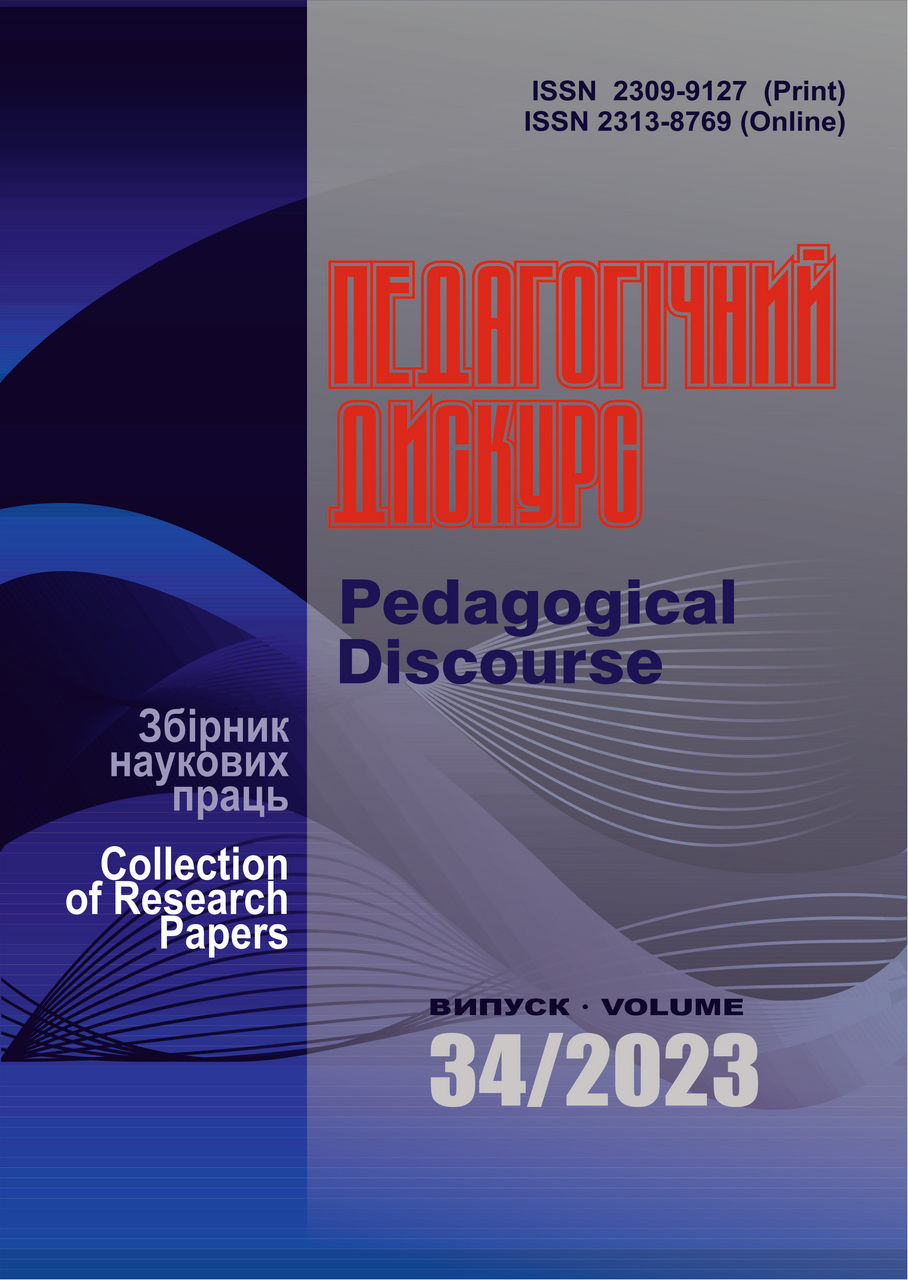The Results of a Pedagogical Experiment on the Development of Critical Thinking of Future Computer Science Teachers in the Process of Professional Training
Abstract
The article presents the implementation of pedagogical conditions and a structural and functional model for the development of critical thinking of future computer science teachers in the process of professional training. Based on an in-depth analysis of scientific research, the author’s definitions of the terms «critical thinking», «development of critical thinking» is presented and a number of skills that belong to the competence of critical thinking are identified. The stages of the pedagogical experiment are analysed in detail: preparatory, main and reflective-analytical. The list of basic methods, techniques, means of developing the critical thinking of future specialists and forms of work that are most effective at each stage is highlighted. The implementation of the first pedagogical condition was ensured by the use of modern information and communication technologies in the educational process in combination with methods and strategies for the development of critical thinking; the second pedagogical condition was implemented by the introduction of interactive forms and methods in the process of studying specialised disciplines aimed at using the value potential of training courses. The third pedagogical condition was ensured by testing various methods of developing critical thinking during lectures and seminars, which promoted the introduction of the mechanism of personal reflection into the learning process, required new ways of acting in atypical circumstances and ensured the formation of reflective skills. The effectiveness of applying the technology of critical thinking development on the basis of personal, competence, activity, systemic, integrative and synergistic approaches, taking into account general didactic and specific principles, is substantiated. On the basis of the quantitative and qualitative analysis of the results of the experimental training it is proved that the success of the development of critical thinking of future computer science teachers in the process of professional training is determined by the introduction of certain pedagogical conditions and the proposed structural and functional model.
Downloads
References
Гончаренко, С. У. (2004). Про критерії оцінювання педагогічних досліджень. Шлях освіти. Взято з: lib.iitta.gov.ua/706520/1/Критерії оцінювання.pdf. [in Ukrainian]
Кошка, О. А., & Красовська, В. Ю. (Упор.). (2014). Педагогічний експеримент у системі інноваційної освітньої діяльності. ХОІППО. [in Ukrainian]
Починкова, М. М. (2021). Формування критичного мислення майбутніх учителів початкової школи у процесі професійної підготовки (Дис. докт. пед. наук). Державний заклад «Луганський національний університет імені Т. Шевченка». Старобільськ. [in Ukrainian]
Ткаченко, Л. І. (2015). Формування критичного мислення майбутніх учителів початкової школи у процесі професійної підготовки (Автореф. дис. канд. пед. наук). Інститут педагогічної освіти і освіти дорослих НАПН України. Київ. [in Ukrainian]
Терно, С. О. (2016). Критичне мислення: динаміка та сфера застосування. Наукові праці історичного факультету Запорізького національного університету, 46, 310–315. [in Ukrainian]
Тягло, О. В. (2017). Досвід засвоєння критичного мислення в українській вищій школі. Філософія освіти, 2 (21), 240–257. [in Ukrainian]
Conover, W. J. (1999). Practical Nonparametric Statistics, 3rd edition. Retrieved from: http://as.wiley.com/WileyCDA/WileyTitle [in English]
Halpern, D. F. (2013). Thought and knowledge: An Introduction to Critical Thinking (5th ed.). Psychology Press. [in English]
Lipman, M. (1988). Critical thinking: What can it be? Educational Leadership, 16 (1), 38–43. [in English]
Starkey, L. В. (2004). Critical thinking skills success. New-York: LearningExpress, LLC. [in English]
Paul, R. W. (1990). Critical Thinking: What Every Person Needs to Survive in a Rapidly Changing World. Rohnert Park, CA: Center for Critical Thinking and Moral Critique, Sonoma State University. Retrieved from: http://evolkov.net/critic.think/Paul.R/index.html [in English]
Copyright (c) 2023 Pedagogical Discourse

This work is licensed under a Creative Commons Attribution-NonCommercial-ShareAlike 4.0 International License.

















